Your problem essentially boils down to doing something on one form based on the events of another form.
The best approach to do this is, in my opinion:
- Let
Main do all its own actions.
- Let
FormA (and others) do all its own actions.
- If you need to do something on
Main based on an event that occurred on FormA, let FormA notify Main that something happened there, so go do your own thing.
- If necessary, pass data from
FormA to Main.
So I would make use of delegates for this purpose.
In my Main I'd declare a public delegate with a signature like this:
public delegate void NotifyComboBoxChange(string item);
That is, this delegate represents a method that takes in one string parameter, and has void return type. The idea is to let FormA 'call' a method in Main, and that method essentially notifies the combo box item was changed on FormA. So, if there was a way for us to call a method that resides in the Main from FormA, we can then notify Main of an event happening on FormA With me so far?
Now, if I write a method like this in the Main, and let it be called from FormA, that should accomplish our goal. Here, txtLabel is a TextBlock in Main.
public void ComboBoxValueChanged(string value)
{
txtLabel.Text = value;
}
To call such a method, I would define a delegate of type NotifyComboBoxChange in Main like below, and register the ComboBoxValueChanged() method to it. Your Main code behind should look like this:
public delegate void NotifyComboBoxChange(string item);
public partial class Form1 : Window
{
public NotifyComboBoxChange notifyDelegate;
FormA formA = null;
public Form1()
{
InitializeComponent();
// This is 'registering' the ComboBoxValueChanged method to the delegate.
// So, when the delegate is invoked (called), this method gets executed.
notifyDelegate += new NotifyComboBoxChange(ComboBoxValueChanged);
}
public void ComboBoxValueChanged(string value)
{
txtLabel.Text = value;
}
private void btnOpen_Click(object sender, RoutedEventArgs e)
{
// Passing the delegate to `FormA`
formA = new FormA(notifyDelegate);
formA.Show();
}
}
Accordingly, now we need to modify our FormA. We need to tell us which delegate to invoke when the combo box selection change happens. So to do that, I'd pass the delegate in the constructor of FormA like so:
public partial class FormA : Window
{
NotifyComboBoxChange notifyDel;
public FormA(NotifyComboBoxChange notify)
{
InitializeComponent();
notifyDel = notify;
}
private void cmbItems_SelectionChanged(object sender, SelectionChangedEventArgs e)
{
// This gets the currently selected value in the CombBox
var value = cmbItems.SelectedValue.ToString();
// This invokes the delegate, which in turn calls the ComboBoxValueChanged() method in Main.
notifyDel?.Invoke(value);
}
}



